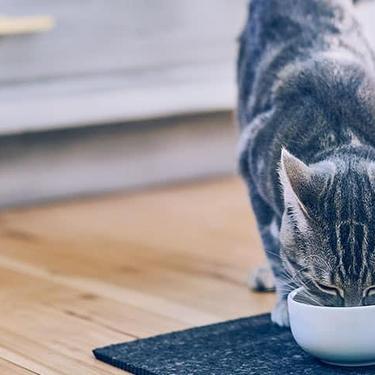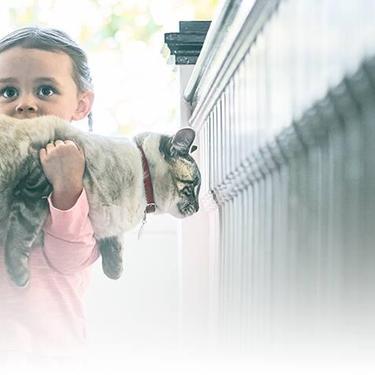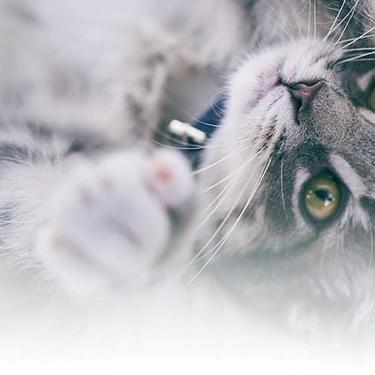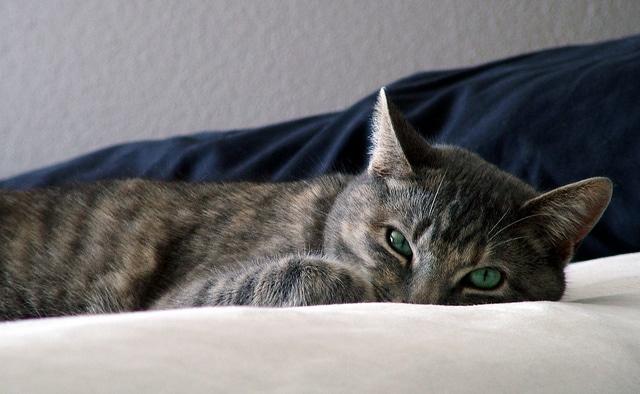
-
Find the right food for your petTake this quiz to see which food may be the best for your furry friend.Find the right food for your petTake this quiz to see which food may be the best for your furry friend.Health CategoryFeatured products
 Hill's Science Diet Adult Healthy Mobility Large Breed Chicken Meal, Barley & Brown Rice Recipe Dog Food
Hill's Science Diet Adult Healthy Mobility Large Breed Chicken Meal, Barley & Brown Rice Recipe Dog FoodAdvanced nutrition shown to support joint health and improve mobility
Shop Now Adult Light Large Breed Chicken Meal & Barley Recipe Dog Food
Adult Light Large Breed Chicken Meal & Barley Recipe Dog FoodFewer calories for less active large breed dogs
Shop Now Adult Large Breed Chicken & Barley Recipe Dog Food
Adult Large Breed Chicken & Barley Recipe Dog FoodSupports healthy joints, lean muscle, and beautiful coat for large breed dogs
Shop NowFeatured products Adult Perfect Digestion Chicken, Barley & Whole Oats Recipe Cat Food
Adult Perfect Digestion Chicken, Barley & Whole Oats Recipe Cat FoodHill's Science Diet's breakthrough nutrition supports ultimate digestive well-being & healthy microbiome
Shop Now Adult Oral Care Chicken & Brown Rice Recipe Cat Food
Adult Oral Care Chicken & Brown Rice Recipe Cat FoodClinically proven kibble technology to reduce plaque & tartar build-up
Shop Now Kitten Healthy Cuisine Tender Chicken & Rice Medley
Kitten Healthy Cuisine Tender Chicken & Rice MedleyDelicious tender chicken and rice in a mouthwatering sauce with precisely balanced nutrition to support 5 essential building blocks for lifelong health
Shop Now -
DogCat
- Cat Tips & Articles
-
Health Category
- Weight
- Skin & Food Sensitivities
- Urinary
- Digestive
- Kidney
- Dental
- Serious Illness
-
Life Stage
- Kitten Nutrition
- Adult Nutrition
Featured articles Fun Ideas for Kids and Pets This Summer
Fun Ideas for Kids and Pets This SummerOutdoor summer activities with your dog or cat can be fun for kids, too. Learn how they also teach kids responsibility & creates a bond with their pet.
Read More Adopting a Pet: What You Need to Know
Adopting a Pet: What You Need to KnowLearn the basics of adopting a pet, including where to begin and common questions you should ask yourself when deciding which kind of pet is best for you.
Read More Cat vs. Dog: Which Is the Best Pet for Me?
Cat vs. Dog: Which Is the Best Pet for Me?Learn about important differences between dogs and cats, such as cost & space considerations. These factors can help you decide which pet is best for you.
Read More -


When cold and flu season's in full swing, you work hard to keep yourself free from illness, but what about your feline friend? Can she get cat flu? Can a cat catch a cold?
What about the Coronavirus?
As a concerned pet parent, reading about coronavirus disease COVID-19 might prompt you to wonder about the risk of infection between you and your pet. At this time, there is no evidence that pet dogs, cats, food, or food packaging could be a source of infection to other animals or humans. As the Coronavirus (COVID-19) situation continues to evolve, it’s important to monitor updates with the
World Health Organization as new information arises.
There is no current evidence that dogs, cats or other pets can spread the human version of the virus. The World Small Animal Veterinary Association (WSAVA) has issued a very helpful advisory document available at WSAVA Advisory Document which is regularly updated, and could assist in answering questions, including specific Q&A. If you still have concerns, it’s best to talk to your veterinarian.
Can We Get Each Other Sick?
If you have the flu or a cold, don't worry too much about transferring the illness to your pet. There are documented cases of pet parents transferring the H1N1 virus to their household cats, notes Smithsonian magazine, and cats may transfer it to humans; however, it's very rare. In 2009, when the H1N1 virus (aka swine flu) was considered an epidemic in the United States, there was cause for concern because H1N1 transferred from animals (pigs, in this instance) and infected humans.


Tasty Tips
The Nature of the Virus
Cats are capable of catching the flu, as well as upper respiratory infection caused by one of two viruses: feline herpesvirus or feline calicivirus. Cats of all ages are susceptible, but young and old kitties are particularly vulnerable because their immune systems are not as strong as cats in their prime.
Cats catch the virus when they come into direct contact with an infected cat or the viral particles, explains VCA Animal Hospitals. The organization adds, "the virus is excreted in saliva and in discharges from the eyes and nose of an infected cat." Therefore, it's important to keep your cat away from other cats that are sick.
If your cat contracts the flu or an upper respiratory infection, the virus may stick around, says Love That Pet. "Unfortunately, cats that recover from cat flu may become temporary or permanent virus carriers. This means that they may shed the virus into the environment, even if they do not appear to be sick anymore." Once your cat catches the flu, keep an eye out for recurring symptoms.
If you suspect that your cat has the flu, symptoms to look out for include:
- Lethargy
- Coughing
- Sneezing
- Runny nose
- Fever
- Loss of appetite and not drinking water
- Runny eyes and/or nose
- Trouble breathing
Call your veterinarian right away, and expect to bring in your fur baby for a checkup.
Treatment and Prevention
Vaccinating your cat and keeping those vaccinations up to date will maintain your pet's health and help prevent illness. Another key factor is keeping the germs away: wash your hands thoroughly and often (and ask others to do the same); sanitize any infected areas, such as bedding, clothing and towels; and avoid contact with anyone (and any animal) who may be sick.
Animals can contract illnesses from other animals, so it's important to keep your healthy cat separated from ill pets. Eye and ear discharge and saliva are common ways animals spread germs, so separate food and water stations.
As noted, if you suspect the flu or a cold, contact your veterinarian immediately. According to PetMD, "There is no cure for influenza and treatment is symptomatic in nature. Nursing care may be required to keep the eyes and nose clean and clear of discharges." Possible treatments include antibiotics and fluids to prevent dehydration. Your vet will provide you with a detailed treatment plan.
During her recuperation, your fur baby will need a lot of love and attention, and she'll want to do the same for you if you're under the weather. This may be tricky if you're also sick, but take comfort in the fact that once you're both healthy, you can smother each other with affection.


Christine O'Brien is a writer, mom, and long-time cat parent whose two Russian Blues rule the house. Her work also appears in Care.com, What to Expect, and Fit Pregnancy, where she writes about pets, pregnancy, and family life. Find and follow her on Instagram and Twitter @brovelliobrien.
Related products

Hill's Science Diet's breakthrough nutrition supports ultimate digestive well-being & healthy microbiome

Clinically proven kibble technology to reduce plaque & tartar build-up

Delicious tender chicken and rice in a mouthwatering sauce with precisely balanced nutrition to support 5 essential building blocks for lifelong health

Delicious roasted chicken and rice in a mouthwatering sauce
Related articles

Understand the symptoms of a chronic upset stomach in your cat, and learn how to help sooth their discomfort.

Provide the best possible treatment for cats with sensitive skin by spotting the signs, knowing the causes, and understanding the remedies. Learn more now.

Get helpful information on proper feline oral healthcare and why it's so vital to take care of your cat's teeth.

Obesity affects more than 30 percent of cats in America. Learn how you can properly feed and exercise your cat to improve its weight management.

Put your cat on a diet without them knowing
Our low calorie formula helps you control your cat's weight. It's packed with high-quality protein for building lean muscles, and made with purposeful ingredients for a flavorful, nutritious meal. Clinically proven antioxidants, Vitamin C+E, help promote a healthy immune system.
Put your cat on a diet without them knowing
Our low calorie formula helps you control your cat's weight. It's packed with high-quality protein for building lean muscles, and made with purposeful ingredients for a flavorful, nutritious meal. Clinically proven antioxidants, Vitamin C+E, help promote a healthy immune system.


